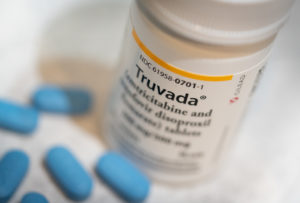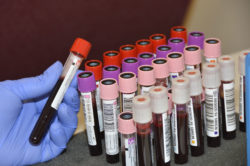Question Bank
Browse our library of surveys here in the MyVoice Question Bank.
Are you 14 to 24 years old and want to join MyVoice to start making your opinions heard? Sign up now.
Want to know more about how MyVoice works? Read our research protocol paper.
- This week's questions are about abortion. Abortion is a medical procedure that ends a pregnancy. When you think about abortion, what comes to mind?
- Where do people your age get information about accessing abortion?
- The federal government and many state governments may soon change the rules on what abortions are legal. What kind of changes to abortion access have you heard about?
- How do you feel about these potential changes to abortion access? Why?
- What factors do people your age consider when deciding whether or not to have an abortion?
- The Supreme Court has removed federal protections for abortion, and now states will decide which abortions are legal. What kind of changes to abortion access have you heard about?
- How do you think this change impacts young people's decisions about sex (such as decisions to have sex or not, to use birth control, what kind of birth control to use, etc.)?
- Who in your life would you go to for support if you or a partner needed an abortion?
- If you or a partner had to travel out of state for an abortion, what would you need to make this possible?
- If you needed to find information online about getting an abortion, what specific websites or social media accounts would you look at?
- It’s been a few months since the overturning of Roe v Wade. No matter where you stand, we want to hear from you. Many states are changing which abortions are legal. What changes to abortion access have you noticed for young people in your state?
- How do you feel about these changes to abortion access? Why?
- Tell us about a conversation you’ve had recently about abortion. Who did you talk to and what did you talk about?
- Do you think minors (under 18 years old) should be allowed to make decisions about having an abortion without involving their parents/guardians? Why or why not?
- Some people look for abortion-related information online. How do you decide if the information you see online is trustworthy?
- We want to hear your thoughts and experiences with prescribed contraception/birth control (pills, shots, IUDs, etc.). How has social media affected your thoughts about these types of birth control?
- What are reasons why sexually active people your age might not use prescribed birth control?
- Have you or anyone you know had trouble getting prescribed birth control? What happened?
- Sometimes people feel pressure from others to use or not use prescribed birth control. Has this ever happened to you or someone you know? Tell us about it.
- Access to abortion has changed in the last year for many people. How has this changed your interest in using prescribed birth control, if at all?
- This week we want to hear what you think about contraception/birth control. What comes to mind when you think of birth control?
- Tell us how you first learned about contraception/birth control.
- What questions do you have about birth control? (Can’t think of anything now? What questions have you had in the past?)
- If you had questions about birth control today, where would you look for an answer?
- Is there someone you trust to ask about stuff like this? Who?
- This week’s questions are about breastfeeding. What is the first thing that comes to mind when you think of breastfeeding?
- Breastfeeding includes feeding a baby from the breast or pumped breast milk in a bottle. How do you think breastfeeding impacts babies?
- In what ways do you think breastfeeding impacts mothers?
- How do you think breastfeeding compares to formula feeding?
- Were you breastfed as a child? How do you feel about that?
Date: 9/6/2019
Intro: We want to hear your thoughts about consent- meaning consent in a physical or sexual encounter.
- How would you define consent in a physical or sexual encounter?
- Are there situations when someone doesn’t need to give/get consent in a physical or sexual encounter? When?
- Can consent be nonverbal? If so, how?
- Is there ever a time when someone is too drunk or high to give consent? Tell us more.
Dates: 1/10/2018 – 3/6/2018
Intro: This week we’re going to talk about health insurance coverage of contraception (birth control). A 2014 policy requires that contraception be free for anyone with health insurance.
- On a scale from 1-5, how important is this policy to you? (1= Not at all, 5= Extremely important)
- Has insurance coverage of contraception helped you or someone you know? Tell us about it!
- Time to vote! Would you keep this policy, repeal it, or change it? Why?
Dates: 10/18/2017 – 4/7/2018
Intro: We’re back again with more questions about chlamydia and gonorrhea- this time focused on treatment.
- If you had chlamydia or gonorrhea, how important would it be to YOU that you help your partner(s) gets treated? Why?
- Did you know that you may be able to get medication for your sexual partner(s) if you have an STI? (Your partner may not need to be seen by a doctor!)
- What do you think of this policy to get medications for your sexual partners?
- If you ever got chlamydia or gonorrhea, would you ask your doctor for medication to give to your partner(s)? Why or why not?
- What do you think would help get the word out about this policy?
Date: 8/24/2018
- “What’s love got to do with it?” Have you ever been in a romantic relationship?
- What do you look for in a romantic partner?
- Give us an example of a couple in a healthy romantic relationship. What makes it healthy?
- How do you know when a romantic relationship is unhealthy?
- If you found out a friend was in an unhealthy relationship, what would you do?
Dates: 1/31/2018 – 3/27/2018
- Imagine it's possible to test yourself at home for sexually transmitted infections (STIs; chlamydia, gonorrhea, trichomonas) for free via a urine sample or vaginal swab. If you needed testing, would you use this free home testing?
- If it costs the same, would you prefer being tested for STIs at home or in-person? Why?
- How would you like to receive your home STI test kit if you needed one (mailed, pick up at clinic/school/doctor's office/pharmacy, some other way)? Why?
- What, if anything, would make you uncomfortable using home STI testing?
- Do you feel confident that you could correctly collect a urine sample at home if you were given instructions? Why or why not?
- If you have a vagina, do you feel confident that you could correctly collect a vaginal swab at home if you were given instructions? Why or why not?
- If you needed to be tested for a sexually transmitted infection (STI), what would prevent you from using a home-based STI test?
- What would make home-based STI testing a good option for you?
- Would you feel comfortable returning your sample by mail in a pre-paid envelope? Why or why not?
- How many days would you be willing to wait for the results of a home-based STI test?
- Would you be willing to pay for a home-based STI test kit if you needed it? If yes, how much would you be willing to pay?
- We want to know how kids should learn about physical intimacy (hugging, kissing, sex, etc.). Tell us how you learned about intimacy.
- What is the right age to start talking about intimacy? Why?
- Who do you think should teach youth about it? Why?
- How do you wish it was taught to you?
- How would you teach it to your child (if you had one)?
Date: 3/22/2019
- Do you feel knowledgeable about menstruation (i.e., periods)? Why or why not?
- Have you ever had a conversation with somebody about periods? Give us an example.
- Do you feel comfortable discussing periods with others? Why or why not?
- Some people have problems accessing period products (tampons, pads, etc.). Have you or someone you know experienced this?
- How do you feel about programs or policies that make period products easier to get (given out free at schools, sold without tax, etc.)?
- A recent study showed that very few youth use protection (condoms/dental dams) during oral sex. Why do you think this is?
- On a scale of 1 to 5, how risky do you think it is to have oral sex without protection? (1-Not risky at all, 5- Very risky)
- What do you think are the risks (if any) to not using protection during oral sex?
- What might help more people use protection during oral sex?
Date: 3/1/2019
- This week’s topic is related to sexual health. Do you think HIV is a problem in your community? Why or why not?
- What methods have you heard of to prevent getting HIV?
- PrEP (Pre-Exposure Prophylaxis) is a daily medication that prevents HIV transmission. Have you heard of PrEP? If so, from where?
- Who do you think would benefit from taking PrEP?
- What do you think keeps people who need PrEP from taking it?
Date: 4/3/2020
- Let’s talk about love! Name the most romantic thing someone has done for you or you have done for someone.
- What made it romantic?
- Picture the person that makes you go “heart eyes”. What makes them special to you?
- We see couples in real life, media and on TV who inspire us. Who are your #relationshipgoals? Tell us why.
- How many people do you hope to truly love in your lifetime? Why?
Date: 3/8/2019
- This week is about what you think doctors should teach youth about sex. Do you think doctors should talk to youth about sex? Why or why not?
- Have you had a conversation about sex with your doctor? What was the conversation about?
- How do you think doctors should talk to youth about sex?
- What are the most important things that doctors should tell youth about sex?
- What do you think doctors should NOT say to youth about sex?
Date: 4/5/2019
- The media talks a lot about sexting but we want to get your take. First, what do you think sexting means?
- In your opinion, how often do people your age send naked or semi-naked photos using a cell phone?
- Do you think it is ok to send naked or semi-naked photos using a cell phone? Why or why not?
- When would receiving a naked or semi-naked photo make you uncomfortable? Why?
Dates: 8/30/2017 – 2/17/2018
Intro: Now we want to ask about coverage for sexually transmitted infections (STIs). Right now, screening and treatment for STIs is free for anyone who has health insurance.
- On a scale from 1-5, how important is this policy to you? (1= Not at all, 5= Extremely important)
- Has insurance coverage of STIs helped you or someone you know? Tell us about it!
- Now it’s time to vote! Would you keep this policy, repeal it, or change it? Why?
Dates: 10/25/2017 – 4/14/2018
Intro: We want to talk about chlamydia and gonorrhea, two of the most common sexually transmitted infections (STIs).
- Would it be hard for you to get TESTED for chlamydia or gonorrhea if you wanted to? Why or why not?
- If you tested positive, would it be hard for you to get TREATED for chlamydia or gonorrhea? Why or why not?
- If you thought you had chlamydia or gonorrhea, where would you go to get treatment?
- If you got chlamydia or gonorrhea would you tell your sexual partner(s)? Why or why not?
Date: 8/17/2018



















